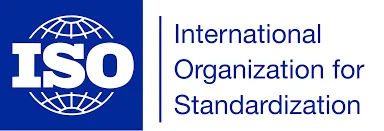ISO Explained
Chances are you’ve come across the term ISO on more occasions than one, but yet aren’t sure what it stands for actually. Don’t worry, and you’re not the only one. ISO is an important organisation for the business market across the globe, so it’s useful to learn a thing or two about it. In this post, you’re going to learn what ISO is, its purpose, and how they actually come up with different standards.
What is ISO?
International Organisation for Standardisation (ISO) is an independent organisation that sets standards to regulate the manufacturing process and performance in various industries. The organisation is comprised of 162 national standards bodies. Headquarters of ISO are in Geneva, but the organisation has its office in all member countries too. ISO was founded on February 23, 1947, to promote worldwide proprietary, industrial, and commercial standards.
Why ISO matters
The importance of ISO is immense for the global market. The organisation has issued over 22,380 international standards in various industries such as food safety, technology, healthcare, agriculture, and others. The main purpose of ISO is to ensure safety to consumers and make sure businesses and organisations across the world respect certain rules and regulations to make the world a safer place.
Having ISO certificate indicates that a manufacturing process, management system, documentation procedure, product or service meets all the necessary requirements for quality assurance and standardisation. The certificate is a sign that specific criteria are met to ensure safety and efficacy which can benefit consumers. ISO standards are published to provide safety and consistency. Each certification has different standards that need to be achieved.

How ISO creates standards
In order to learn how the organisation sets standards, we need to address different types of memberships. They include member bodies or full members, correspondent members, and subscriber members. Full members directly participate in the development of new standards through meetings and voting. Correspondent members attend meetings as observers, while subscriber members only stay up to date with work of ISO but they don’t participate in discussions or anything.
Development of standards is a complicated process that can last up to three years. The organisation gathers experts from a specific area. Those experts carry out thorough research and come up with ideas that could improve production, performance, or safety and meeting new demands on the market. Their findings are discussed at ISO meetings. In order to become a standard, every member has to accept and vote for the draft provided by experts. If not, then the whole process gets more work done.
The most important or popular standards
As seen above, ISO published more than 20 thousands of standards for different industries. Some of those standards are more important or more popular than others. Below, you can see a list of some examples:
- 9001 – it was first published in 1987 and has been updated every seven years. This is the only standard from 9000 family that requires certification. Standard 9001 details how to put a quality management system in place for a greater quality of products and services
- 4001 – belongs to the family of standards that are related to the environment. Similarly to Standard 9001, Standard 4001 is the only standard from this family that includes certification. The standard establishes requirements for an environmental management system, and it’s based on the continuous improvement model PDCA (Plan-Do-Check-Act)
- 22000 – focused on developing and implementing a food safety management system. For example, ISO 22001 is involved with foods and beverages while ISO 22002 focuses on manufacturing of food
- 26000 – this standard was released in 2010, and it provides guidelines on how to make sure the business operates in a way that is socially responsible
- 31000 – released in 2009 and it outlines a program to manage and decrease the risk in the company. This standard eliminates the need for having other risk-based standards from other companies
- 27000 – a family of standards concerned with information technology
- 50001 – the energy standards to improve the use and efficiency of energy and reduce the organisation’s energy footprint through decreased greenhouse emissions.
Send us any questions or great tips to share? – Contact us here.
Induct for Work – the only system you need to create and manage online inductions in UK.






